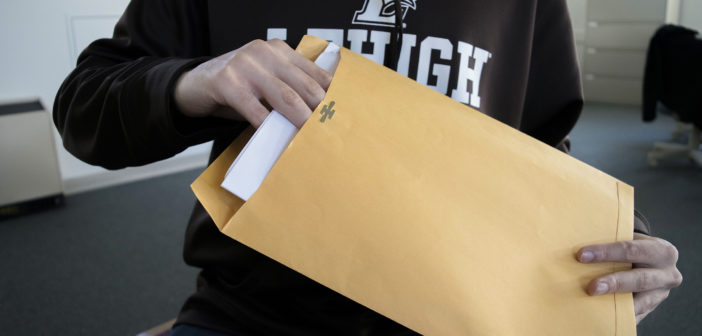When high school seniors receive their admission envelopes or check their decision online, the answer rarely goes into detail. The response might be a yes or no, or offer the student a spot on the waitlist. What’s missing from the decision is the why.
Under the Family Educational Rights and Privacy Act of 1974, otherwise known as the Buckley Amendment, students are able to view any educational records Lehigh may hold by submitting a request to the Admissions Office. The law states universities are obligated to respond to the student’s request within 45 days.
Among the documents that should be available to students are their admission records. With it, students can view the forms they submitted when applying to the university. Students can also request copies of their education records, which include both directory and non-directory information.
Directory information is more general and usually not harming to the student if shared publicly, such as the student’s name, date and place of birth and home and university address.
Non-directory information is more private and cannot be shared with anyone, including the student’s family, without written consent from the student. If students wish to grant their parents access to FERPA-protected documents, they may do so by contacting the Registrar’s Office or the Associate Dean of Students for Academic Support, according to the Registrar website.
If students wish to access their own personal FERPA-protected documents, they must directly contact the admissions office by submitting a written request.
“We receive very few requests from students to view their admissions records in accordance with FERPA. I believe we’ve received two or three requests in the past few years,” Krista Evans, the interim director of admissions, said in an email.
All students have equal FERPA rights that begin at the age of 18 or as soon as a student is enrolled at a university. By FERPA standards, a student is given four basic rights, according to the Registrar website. They may view their records, request changes to records, request directory and/or non-directory records to be kept confidential, and file a complaint with FERPA.
“I actually requested to have a copy of my educational records sent to me when I was an undergrad at Butler University,” Sam O’Neill, ‘17G, said. “I needed them for a job I was applying for. It was very helpful, it had everything from my basic personal information to all my coursework and original admissions folder.”
Demetri Greco, ’20, said he is highly considering submitting a request to the Admissions Office at the end of the academic year. He said some students might not know about the process and Lehigh should make every effort to keep them informed.
“It is necessary for a private school like Lehigh to give its students FERPA rights and give them the option of choosing what they want to do with their educational records,” Greco said. “It’s the role of the university to uphold a certain integrity.”
Students are the sole proprietors of their educational records and only they can grant access to them. However, according to the university website, Lehigh is allowed to disclose the records in certain situations, such as school officials having a legitimate educational interest.
Records can also be disclosed if there is a need for judicial review or for emergency medical reasons.






Comment policy
Comments posted to The Brown and White website are reviewed by a moderator before being approved. Incendiary speech or harassing language, including comments targeted at individuals, may be deemed unacceptable and not published. Spam and other soliciting will also be declined.
The Brown and White also reserves the right to not publish entirely anonymous comments.